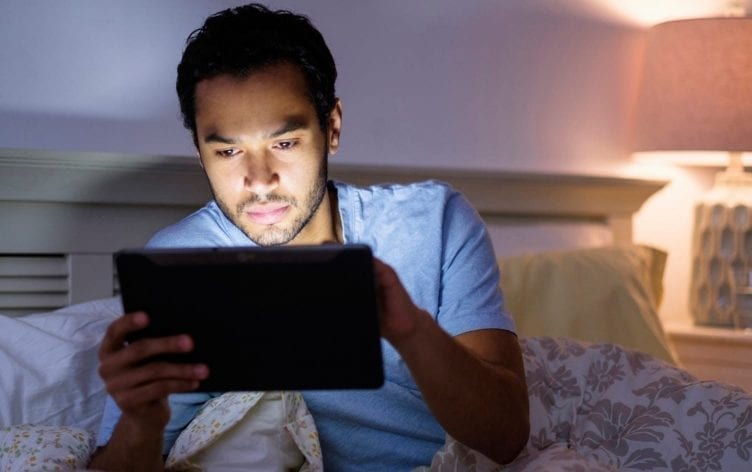I know people who say they can’t sleep without the TV or a lamp on. This indicates that their habit may be causing them to gain weight. But you don’t have to go that far in adding artificial light exposure to face a greater risk of obesity.
https://blog.myfitnesspal.com/the-surprising-connection-between-obesity-and-artificial-light/
The Surprising Connection Between Obesity and Artificial Light

The study included almost 44,000 women between the ages of 35–74 over a six-year period and found women who were exposed to artificial light while sleeping had a 17% higher risk of gaining approximately 11 pounds compared to those who slept in the dark; their rates of obesity were 33% higher. Women who fell asleep with a television or light on were also more apt to gain weight and become overweight or obese over time.
“Humans are genetically adapted to be active during daylight and sleep in darkness at night,” explains lead author Dr. Yong-Moon (“Mark”) Park, MD, postdoctoral fellow at the National Institutes of Health. “Exposure to light at night while sleeping could alter the body’s 24-hour body clock leading to changes in hormones and other biological processes that regulate sleep, appetite and weight gain.”
While the study focused on exposure to artificial light in the bedroom but Park notes that light coming from outside the room — from other rooms or street lights, for example — was also associated with a slightly increased risk of weight gain. The study did not explore whether overall exposure to artificial light, including daytime exposures, had an impact on weight.
Several studies have linked sleep issues, including insomnia, sleep duration and sleep disruptions, to higher rates of obesity. Research published in the journal Sleep Medicine found the incidence of obesity was higher among those who slept fewer than six hours or more than nine hours per night; chronic insomnia was also associated with higher BMI, according to one study.
The link between sleep and obesity is one reason to make improving sleep a priority, says Lu Qi, MD, PhD, director of the Tulane University Obesity Research Center. But sleep is just one of the known risk factors for obesity. Lifestyle factors such as an unhealthy diet, sedentary lifestyle, stress and smoking are also linked to an increased likelihood of being overweight or obese.
“Even if you improve your sleep habits, you still need to pay attention to other risk factors,” says Qi. “We also need to be cautious in interpreting these results; artificial light might be a factor but it could be correlated to other habits that were not part of this study.”
Park agrees, adding, “While our study provides stronger evidence than other previous studies it is still not conclusive. Even so, it seems reasonable to advise people not to sleep with lights on. Turning off the lights at bedtime may be a simple thing we can do to reduce the chances of gaining weight.”
2 thoughts on “Surprising connection between obesity and artificial light”
Hi Ann, this is an interesting idea. Maybe I should rethink my reading in bed by artificial light habit. New diet plan, turn off the lights, read by the light of the moon.
LikeLiked by 1 person
Light to read with HAS to be an exception, don’t you think?
LikeLike